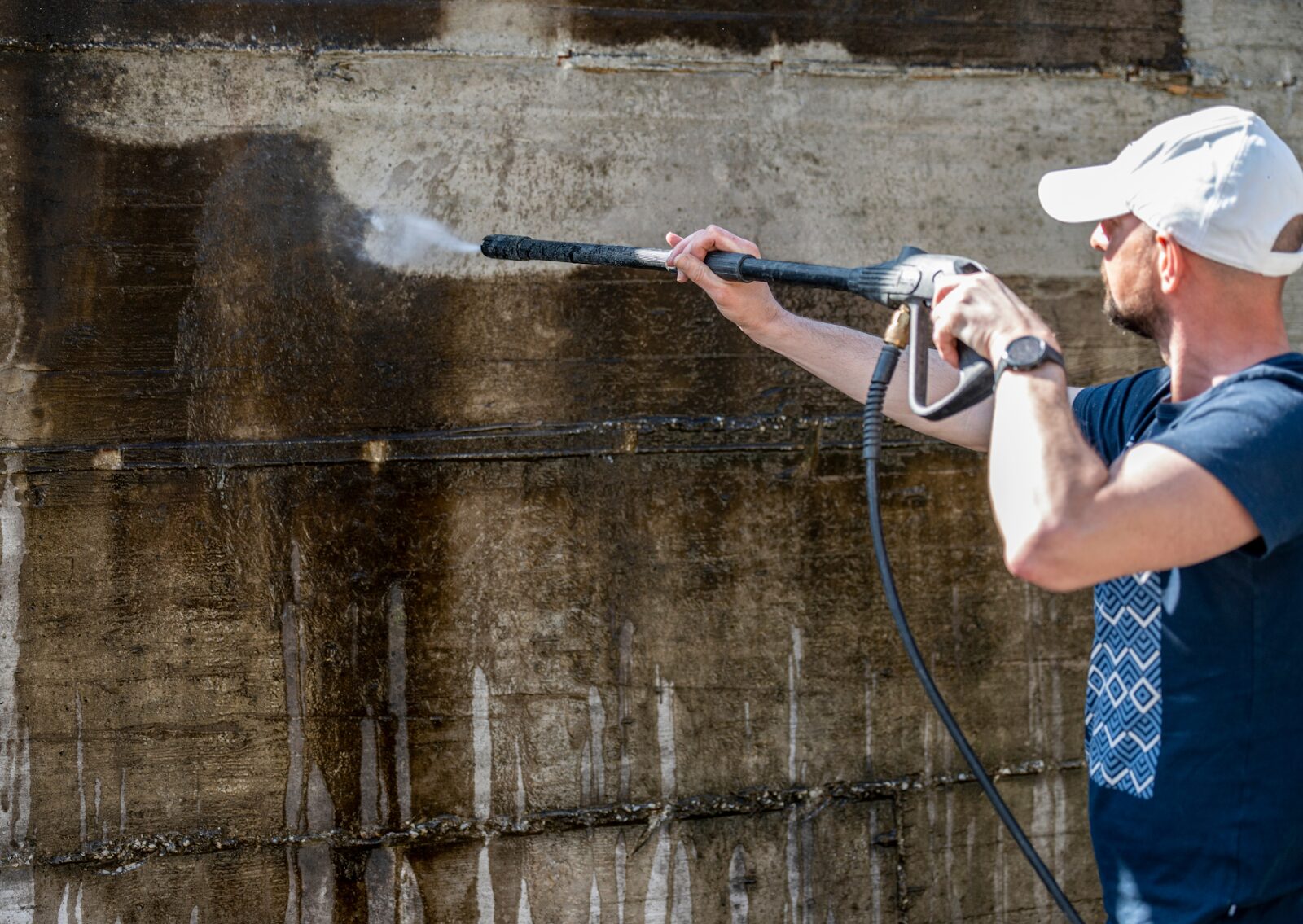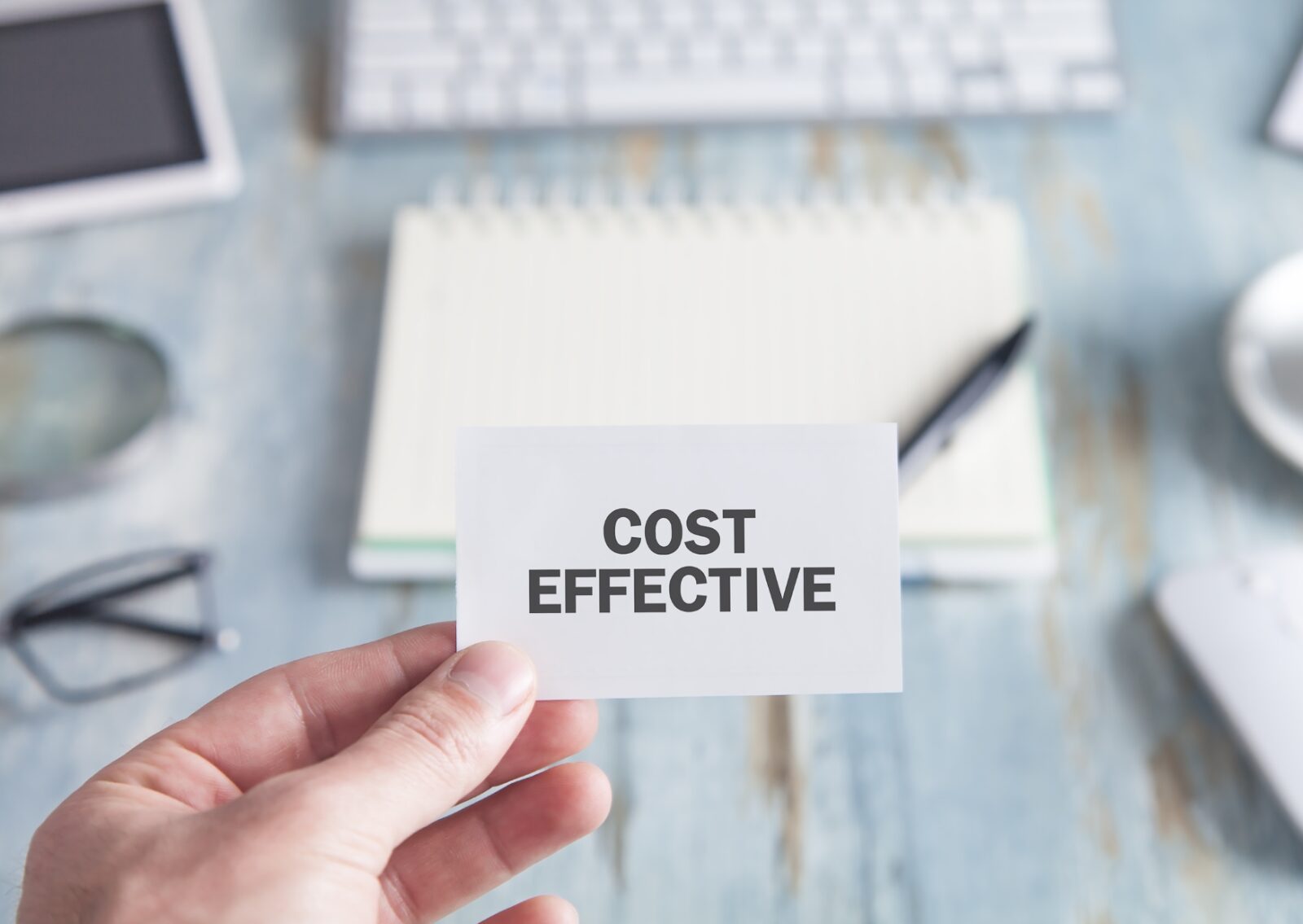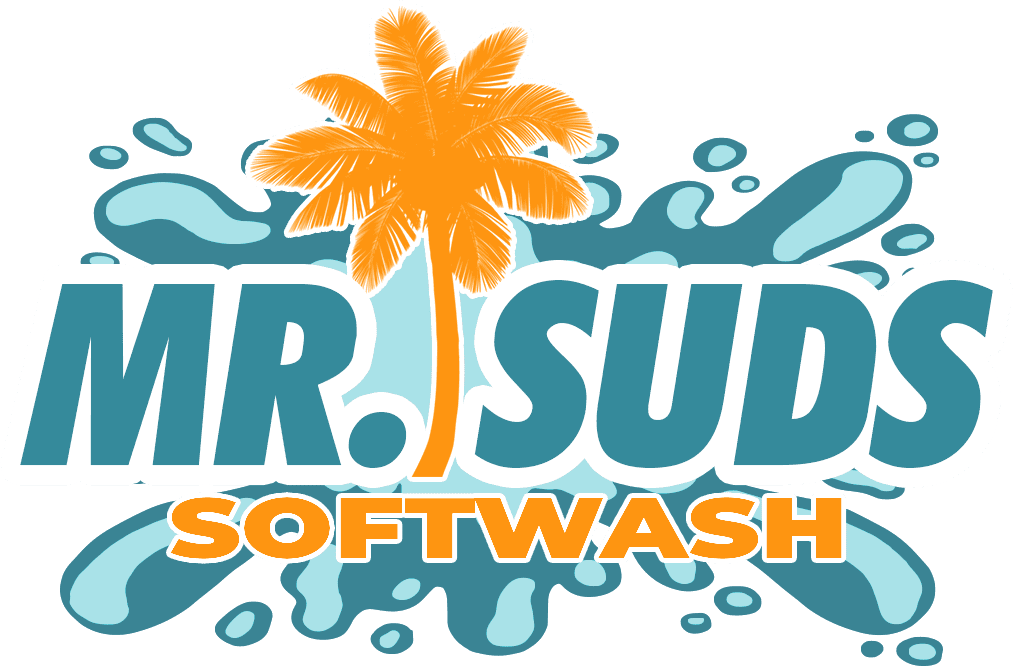
Maintaining your property’s exterior can feel like a constant battle against grime, mold, and dirt. Among the many surfaces that require regular care, concrete walls are particularly vulnerable to buildup. Fortunately, soft-washing concrete has emerged as the best method to safely and effectively clean these surfaces without causing damage. This article answers your most pressing questions about soft washing and its benefits, helping you make informed decisions for your home or property.
What Is Soft Washing and How Does It Differ From Pressure Washing?
Soft washing is a cleaning technique that uses low-pressure water combined with a specialized cleaning solution to safely remove dirt, mold, and other contaminants from concrete surfaces and other exterior materials. Unlike pressure washing, which relies on high-pressure water, soft washing is gentler and avoids the risks associated with aggressive cleaning methods.
A pressure washer uses intense force that can damage delicate surfaces like wood panel siding, cedar shake, and painted areas. By contrast, the soft washing method focuses on breaking down stains and organic growth at the root, delivering more effective results without compromising the integrity of the surface.
Why Choose Soft Washing for Concrete Surfaces?

When it comes to cleaning concrete walls, soft washing stands out as the best method. It provides thorough cleaning while minimizing the risk of erosion or damage. Concrete, though durable, can degrade over time if exposed to high-pressure water from traditional power washing.
Soft-washing concrete not only removes dirt and grime but also tackles deeper issues like algae and moss growth. By eliminating these contaminants, it helps maintain the structure and appearance of your walls for years to come. There are a few ways soft washing can power through stubborn grime and organic growth on concrete walls, ensuring thorough cleaning without the risk of damage.
Can Soft Washing Effectively Remove Mold and Other Stains from Concrete Walls?
Yes, soft washing is highly effective at eliminating mold, algae, and stains from concrete surfaces. Soft washing can power its way through layers of buildup using a combination of specialized solutions and low-pressure water, making it one of the most effective methods available. The specialized cleaning solution used in this method penetrates the surface to kill the root of the problem, preventing regrowth.
For example, areas with high humidity often develop black streaks or green patches. Soft washing removes these blemishes, restoring the wall’s original look without the abrasive effects of pressurized water.
Is Soft Washing Safe for Delicate Surfaces Like Wood Panel Siding and Cedar Shake?

Absolutely. One of the key advantages of soft washing is its versatility. While pressure washing can cause grease, paint, or even structural damage to delicate surfaces, soft washing is safe for materials like cedar shake and wood panel siding. It’s also ideal for cleaning wood decks, vinyl siding, and other sensitive areas.
By using low-pressure water and biodegradable solutions, soft washing ensures that these surfaces are cleaned thoroughly without any risk to their structural integrity.
How Does Soft Washing Enhance Curb Appeal?
If you’re looking to boost your property’s curb appeal, soft washing is a game changer. Over time, dirty concrete surfaces, roofs, and siding can detract from the appearance of your home or business. Soft washing restores these surfaces to their original beauty by removing stains, mold, and grime.
A freshly cleaned exterior not only looks more inviting but also adds value to your property. If you’re planning to sell or rent, clean surfaces can make a significant difference in attracting potential buyers or tenants.
What Are the Environmental Benefits of Soft Washing?
Soft washing is an environmentally friendly alternative to pressure washing services. Many of the cleaning solutions used in soft washing are biodegradable, making them safer for plants, pets, and the environment.
Additionally, soft washing uses significantly less water than traditional power washing. By combining low-pressure water with effective chemicals, this method achieves superior results while reducing resource waste.
How Does Soft Washing Prevent Damage to Concrete Surfaces?
One of the most important benefits of soft-washing concrete is that it preserves the surface’s integrity. High-pressure water from a power washer can create cracks or wear down the protective layer of concrete, leading to long-term damage.
By using low-pressure water and a targeted solution, soft washing avoids these pitfalls. It’s a process designed to clean without causing harm, ensuring your walls remain strong and intact.
Can Soft Washing Be Used on Other Surfaces Like Roofs and Wood Decks?

Yes, soft washing is highly versatile. In addition to concrete walls, it can clean surfaces like roofs, wood decks, driveways, and patios. Whether you’re dealing with asphalt shingles, stone, or vinyl, soft washing offers a safe and effective cleaning option.
For example, homeowners often struggle with algae-covered roofs or grime on wooden patios. Soft washing tackles these issues head-on, extending the lifespan of these materials.
What Are the Risks Associated with Pressure Washing Concrete Walls?
While pressure washing may seem like a quick fix, it comes with its risks. High-pressure water can cause the material to chip or erode, especially if the operator is inexperienced. Additionally, the nozzle settings on a pressure washer must be adjusted properly to avoid over-pressurizing the surface.
Soft washing, on the other hand, eliminates these risks by using a controlled method that prioritizes safety.
How Does Soft Washing Contribute to Maintaining a Clean and Healthy Environment?
By eliminating mold, bacteria, and other contaminants, soft washing helps create a healthier living environment. Mold spores and algae can negatively affect air quality and pose health risks to your family. Soft washing removes these hazards from your property, promoting a cleaner, safer space for everyone.
Is Soft Washing a Cost-Effective Method for Cleaning Concrete Walls?

Yes, soft washing is a cost-effective option. Although it may seem pricier upfront than traditional power washing, the long-term benefits far outweigh the initial investment. Because soft washing addresses the root causes of stains and organic growth, you won’t need to clean your walls as frequently.
Additionally, by preserving the integrity of your concrete surfaces, soft washing saves you money on repairs and replacements down the line.
How Can You Obtain a Free Quote for Soft Washing Services?
Getting started with soft washing is easy. Many companies, including Mr Suds Softwash, offer a free quote for their pressure washing services. Simply contact a professional and provide details about the surfaces you’d like to clean. Factors like surface size, the extent of buildup, and material type will influence the final pricing.
Ready to Transform Your Concrete Walls and Boost Your Property’s Curb Appeal?

Reach out to Mr Suds Softwash today for a free quote. Our expert team specializes in delivering safe, effective, and environmentally friendly cleaning solutions for every surface. Let us help you protect your investment and maintain a pristine exterior.
We believe in the power of soft washing to not only clean but also preserve your property. By choosing Mr Suds Softwash, you can trust that your concrete walls, roofs, and other surfaces are in good hands. Say goodbye to dirt, mold, and grime, and enjoy a property that looks its best all year round.
Frequently Asked Questions:
- What is soft washing, and how does it work?
Soft washing is a cleaning method that uses low-pressure water and specialized cleaning solutions to remove dirt, mold, and other contaminants from surfaces like concrete walls. It is a safer and more effective alternative to pressure washing. - How does soft washing differ from pressure washing?
Unlike pressure washing, which uses high-pressure water that can damage surfaces, soft washing relies on low-pressure and cleaning solutions to break down grime without harming the material. - What are the benefits of soft-washing concrete walls?
Soft washing removes dirt, algae, and mold while protecting the concrete’s integrity. It prevents damage caused by high-pressure methods and enhances the wall’s appearance, extending its lifespan. - Can soft washing effectively remove mold and tough stains?
Yes, soft washing is highly effective at removing mold, algae, and deep stains. The cleaning solutions penetrate the surface to eliminate the root causes, preventing regrowth. - Is soft washing safe for all surfaces?
Absolutely. Soft washing is suitable for concrete walls, roofs, wood decks, vinyl siding, and delicate materials like cedar shake and wood panel siding. It cleans thoroughly without causing structural damage. - What are the environmental advantages of soft washing?
Soft washing uses biodegradable solutions and significantly less water compared to traditional power washing, making it an eco-friendly choice. - How does soft washing enhance curb appeal?
By removing stains, grime, and organic growth, soft washing restores surfaces to their original beauty. This can increase property value and attract potential buyers or tenants. - Can soft washing be used on surfaces other than concrete?
Yes, soft washing is versatile and can clean roofs, driveways, patios, wood decks, and other materials like asphalt shingles and stone. - What are the risks of pressure washing concrete walls?
Pressure washing can erode or crack concrete surfaces if not done correctly. Soft washing eliminates these risks by using low pressure and targeted cleaning solutions.
Is soft washing a cost-effective cleaning method?
Yes, while soft washing may cost more upfront, it addresses the root causes of stains and buildup, reducing the need for frequent cleaning and saving money on repairs over time.

